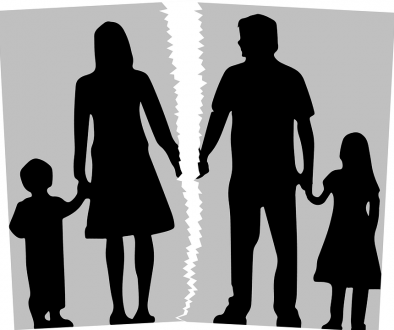How to Handle Divorce When Kids are Involved
How to Handle Divorce with Kids.
A study from VeryWell Family shows that: “Children living with both biological parents are 20 to 35 percent more physically healthy than children from homes without both biological parents present.”
The crushing impact of divorce on children is one of the main reasons some couples stay in unhealthy relationships. However, it is better for children to live in a healthy home than abusive relationships. There are higher chance of the children who witness such abuse entering into one themselves.
There are complications (challenges) that parents should consider, especially when children are involved. Please note that the divorce process is hard for adults; therefore, it is much harder for children to understand and live through. The divorce process and two years after a divorce is finalized are the toughest period for children of divorced families. Here are few of the side-effects to note and consider.
Educational side-effects: Generally, children tend to experience disinterest in school during a divorce process. They lose focus, if not deliberately, then intentionally as to gain the attention of a particular parent. Studies show that children from divorced families are more than twice likely to drop out of high school.
Behavioral side-effects: “Children from divorced families may experience more externalizing problems, such as behavioral disorders, delinquency, tardies, bullying, and impulsive actions than kids from two-parent families. Additionally, they may also experience more conflict with peers after a divorce.
Emotional side-effects: The emotional roller-coaster accompanied with divorce is strong, even for adults. Children from divorce families tend to struggle with parental separation. More-so, they wonder if the divorce is their fault. Are they still loved? Why do they have to live in two homes? Why is mom always frazzled and not as composed as before? The stress of moving to a new home, neighborhood, leaving their friends, and watching their parent(s) single-parent them can take a toll on their emotions.
Financial side-effects: From legal fees to division of properties, divorce tend to leave one parent on scraps than another. If both couples have moderate income, then the child may not feel the decrease in savings. However, children in divorced homes do notice the change. Some things that they can easily buy or ask for no longer becomes available. Research shows that single parents earn less than two-parents household. Perhaps this is an obvious statistic because there are two earning powers versus one.
Remedies for how to handle divorce with children.
Explain: You may think your kids do not have the right to know what is going on. After all, you are both adults capable of making sound decisions, right? Not so fast! Kids are a part of this major decision because it will affect their behavioral health and emotional well-being. A straight A student can suddenly lose focus when she realizes that daddy will not be home any more. The definition of home will no longer be the same; in stead, she has two homes. Therefore, it is best to talk to your child and explain (at their level of understanding) what is going on. More importantly, help them understand that they are not the reason for mom and dad not getting along.
Attentive: It is helpful for parents to pay attention to their child and monitor his response or reaction when they break the news to the child about their divorce. It will likely tell you how to help the child navigate through this difficult process. Remember, this is a tough journey with emotional meltdowns for adults; imagine how much more tasking it is for a child.
Therapy: It is common for kids to shut down during divorce process. It is important to make an appointment with a therapist for the children. You may be able to find a good family therapist or child therapist in your area that can help the child professionally. A child might not want to talk to either of the parents; he may shut down and become unresponsive — or worse, devising ways to hurt themselves or others. It is best to schedule an appointment with a therapist or a counselor for your child. If you cannot afford one, let the child’s school counselor know what is going on at home. They may be able to help – by keeping an extra eye on the child.
Working Together: Although a marriage may become insupportable, the two parents can still be mature about their decision. Also, the parents can remain involved in the child’s life and work out their own indifference. Focus on the health of the child and how to help the child. This may require both parents to get help first so they can help the child. Parents can still work together as a team to make the divorce process smoother and less stressful for the child(ren).
